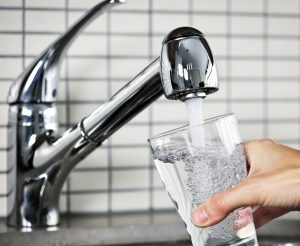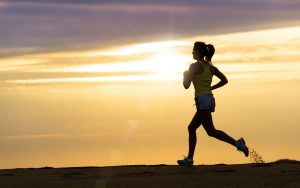Heat, humidity, age, body mass, and level of physical activity – there are numerous factors to hydration, particularly that of an athlete. While everyone benefits from knowing exactly how much they need to drink on a daily basis, for an athlete this is absolutely essential. We need to know all the details of what to drink, when, and how much of it, and if you’re serious about your fitness, this is one of the basics that you really need to learn well. For excellent performance, health, and added energy levels, here’s how you need to approach hydration for optimal results.
We’re starting with water because it really is the best thing that you can drink. Taking it has absolutely no side-effects, and there isn’t a single person out there who wouldn’t benefit from plain old water. Why? Because it’s an essential part of every system in our body, and we actually need it to function. It’s the solvent f

or all the biochemical processes that happen in our organs and tissues, and every single cell uses it to function properly. It helps regulate our temperature and metabolism, helps remove toxins through sweat, helps our kidney function and digestion, and even protects your spinal cord and joints by keeping the cartilage well-moisturized. It’s the essence of life, and our whole body is basically made out of 60% water.
For an athlete, the benefits stretch much further from these bare necessities – staying hydrated could make a difference between a successful workout that leaves you full of energy, and a bad workout that exhausts you and makes your body ache all over. Not drinking enough leads to delayed muscle soreness and wear and tear of joints (particularly dangerous for people who lift weights), and it could also stagnate your muscle building and fat loss.
You’re more likely to experience headaches and cramping muscles, and your recovery time will be significantly slowed down. We’re not talking only about injuries either – a dehydrated athlete is left exhausted after an intense workout, and you’re less likely to be eager to exercise again the next day.
Even your cognitive function is influenced – several studies found that your mood and your ability to focus are impacted by dehydration. It doesn’t matter whether you play sports professionally or are just working hard to get in shape. You need your ability to focus on the task at hand, and you need to drink enough water for that to happen.
So, how do we notice if we’re becoming dehydrated in the first place? Severe symptoms are difficult to ignore – dizziness, rapid heartbeat, rapid breathing, sunken eyes, dry mouth, and even fainting are obvious indicators something is wrong. However, most people rarely let it get to that point, and need to pay attention to signs of mild-to-moderate dehydration – headaches, muscle cramps, thirst, darkened urine, and dry, cold skin. If you start feeling any of these symptoms, immediately drink a glass of water, but try to sip instead of guzzling it down.
As you can notice from the symptoms above, thirst is a sign you’re already dehydrated. Given the impact this has on your athletic abilities, you really shouldn’t let it happen in the first place. Don’t wait until you’re really thirsty to remember you need to drink something, especially if you tend to get busy and forget to take care of yourself properly.
 It depends on your activity level and the time of the year, but in general, an athlete will need about 2-3 liters of water per day, plus about 500 ml per hour of exercise. Add a bit more to that during the sweltering summer heat, or when you’re doing extremely intense workouts where you sweat a lot and lose a lot of moisture.
It depends on your activity level and the time of the year, but in general, an athlete will need about 2-3 liters of water per day, plus about 500 ml per hour of exercise. Add a bit more to that during the sweltering summer heat, or when you’re doing extremely intense workouts where you sweat a lot and lose a lot of moisture.
It’s a little difficult to really remember that you need to take more liquids, but there are a few things that could help you establish good habits. First, get your own reusable 2-litre water bottle and keep it next to you all day. Reusable bottles are not only better for the environment because they create less plastic waste, but they’re simply a smart investment, they’re very handy for anyone who works out, and they’re very good at making it easy for you to stay hydrated. You can sip through the day slowly with no fuss at all. Second, if you’re very forgetful, get a hydration app on your phone. Most of them are completely free, so find the one that will give you reminders when it’s time to take a drink.
We do recommend that you make a note out of exactly how much you’ve drunk that day. That way you can avoid both dehydration, and accidental over-hydration.
While water is your number one go-to drink for every day, an athlete can actually benefit quite a bit from sports drinks. They do have sugar in them and we’d never recommend them for the general population (especially if they are very passive) but the added carbohydrates mean a lot to someone who’s physically very active.
Good drinks have plenty of electrolytes and minerals in them, and they can promote recovery time and give you a boost of energy and motivation to finish your workout. It’s recommended that you drink them only during exercise because that’s when they’ll benefit you the most.
Another thing athletes can benefit from is green tea – it’s full of antioxidants that help remove free-radicals from the body, and it can give your body a serious metabolism boost. Not only that, some studies show that it also helps improve your endurance, so you’ll be able to exercise for a longer time without getting tired.
Sipping slowly through the day is the best way to stay consistently hydrated, however you’ll need to up your intake during workouts. We recommend that you drink half a litre of water 2-3 hours before exercise, then drink one glass 30 minutes before your exercise, and then keep sipping from a water bottle whenever you take a small break during a workout. Once you’re done, drink yet another glass of water and you should retain optimal levels of hydration and have a very successful workout.
And remember, this is all about consistency. Try not to break your own rules and get lazy, because if you instill some good hydration habits you’ll see a lot of benefits in the long run.